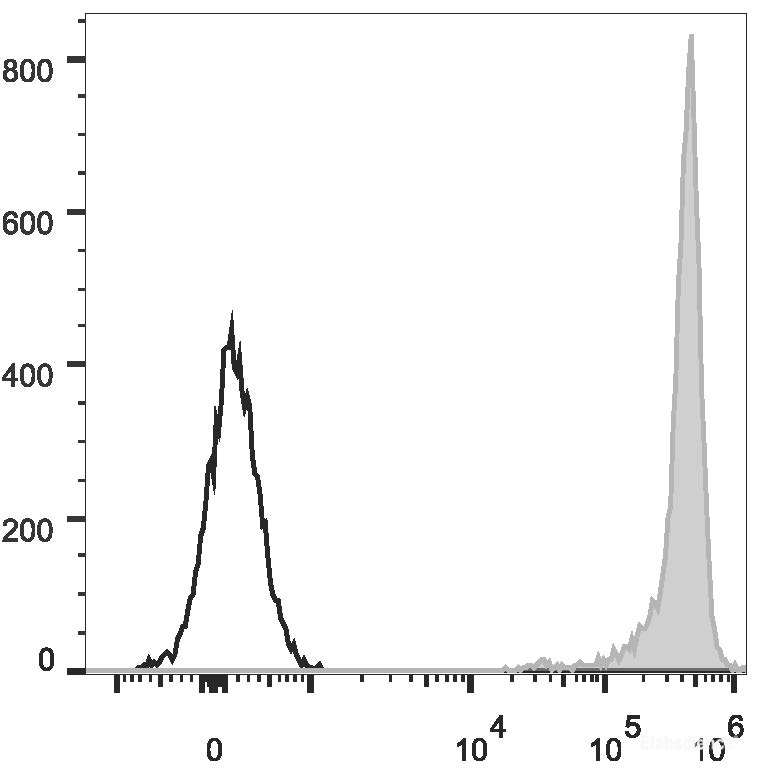Elabscience
SKU:E-AB-F1226D
PE Anti-Rat CD90/Mouse CD90.1 Antibody[OX-7]
PE Anti-Rat CD90/Mouse CD90.1 Antibody[OX-7]
Couldn't load pickup availability
PE Anti-Rat CD90/Mouse CD90.1 Antibody[OX-7]
The PE Anti-Rat CD90/Mouse CD90.1 Antibody [OX-7] is a highly specific and reliable tool designed for the detection and analysis of CD90 expression in rat and mouse samples. This antibody is conjugated with phycoerythrin (PE), a fluorescent dye that allows for easy visualization and quantification of CD90-positive cells.
CD90, also known as Thy-1, is a glycosylphosphatidylinositol (GPI)-anchored membrane protein that is widely expressed on various cell types, including hematopoietic stem cells, fibroblasts, neurons, and lymphocytes. It plays a crucial role in cell adhesion, migration, and signal transduction, making it an important marker for studying cell populations and their functions.
The PE Anti-Rat CD90/Mouse CD90.1 Antibody [OX-7] has been extensively validated for its specificity and sensitivity in flow cytometry and immunohistochemistry applications. It exhibits minimal cross-reactivity with other antigens, ensuring accurate and reliable results. The high-quality formulation of this antibody guarantees consistent performance and reproducibility, making it an ideal choice for research and diagnostic purposes.
With its bright PE fluorescence and excellent staining properties, this antibody enables precise identification and characterization of CD90-positive cells in complex biological samples. Its compatibility with both rat and mouse samples provides versatility and convenience for researchers working with different animal models.
The PE Anti-Rat CD90/Mouse CD90.1 Antibody [OX-7] is supplied in a ready-to-use format, eliminating the need for time-consuming preparation steps. It is recommended for use in various research areas, including immunology, stem cell biology, cancer research, and tissue engineering.
In summary, the PE Anti-Rat CD90/Mouse CD90.1 Antibody [OX-7] is a valuable tool for the detection and analysis of CD90 expression in rat and mouse samples. Its high specificity, sensitivity, and ease of use make it an essential component for any laboratory conducting research in the field of cellular biology.
Share


